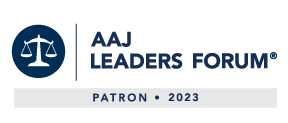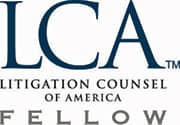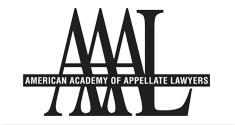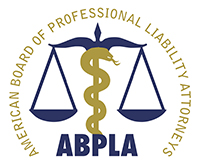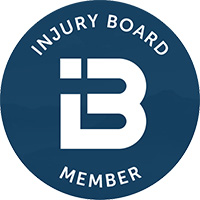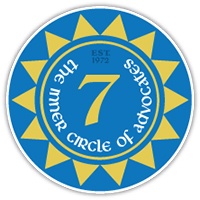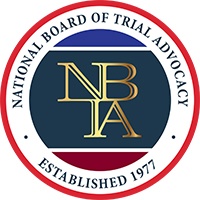
What Is Cerebral Palsy?
Cerebral palsy, or CP, is an umbrella term used to classify symptoms characterized by a loss or impairment of motor functions that can affect walking, balance, posture, reflexes, coordination, and muscle control. The Centers for Disease Control and Prevention estimates that nearly 4 out of every 1,000 live births are affected by cerebral palsy.
The causes of cerebral palsy are wide-ranging; there are times when a baby suffers brain damage because of medical negligence. When medical professionals fail to properly monitor the mother and baby during labor and delivery, or fail to properly monitor the baby in the NICU, hypoxic-ischemic encephalopathy can result, and ultimately lead to a diagnosis.
Lifetime care for a child suffering from cerebral palsy can be overwhelmingly expensive. It is essential to determine the cause of your child’s condition so that you can pursue the just compensation to which you and your family may be entitled.

The Providence cerebral palsy lawyers at Mandell, Boisclair & Mandell, Ltd have an extensive background handling cases involving cerebral palsy. Our veteran legal team has the experience, knowledge, and resources necessary to ensure that your rights are protected and your child receives the standard of care they deserve during this difficult time. We strive to help our clients meet both their immediate needs in addition to ensuring your family has what it needs for the future.
What are the Symptoms of Cerebral Palsy?
Cerebral palsy occurs when the brain has been so significantly damaged that it impacts someone’s ability to control their muscles. This can cause lifelong impairment.
The symptoms of cerebral palsy vary in severity from person to person. The most common symptoms of CP include:
- Sensory processing issues
- Hearing and vision impairments
- Speech and language issues
- Epilepsy or seizure disorders
- Cognitive disabilities
- Muscle spasticity
- Difficulties with fine motor skills
- Inability to sit or walk unsupported
- Postural abnormalities
- Poor muscle tone
What Are the Four Types of Cerebral Palsy?
There are four types of cerebral palsy. Based on the specific symptoms of the child, a medical expert may identify:
- Spastic Cerebral Palsy: A child with spastic cerebral palsy has difficulty controlling muscle movement and experiences stiff and spastic muscles, delayed movement, and increased muscle tone. This form of cerebral palsy accounts for 75 percent of all cases.
- Dyskinetic Cerebral Palsy: This type of cerebral palsy is characterized by unpredictable movements, poor posture, and repetitive, twisting motions. Dyskinetic cerebral palsy is the second most common type of CP.
- Mixed Cerebral Palsy: As the name suggests, this type of CP involves a blend of multiple forms of cerebral palsy. The most common mixture is spastic-dyskinetic cerebral palsy.
- Ataxic Cerebral Palsy: A child with ataxic cerebral palsy experiences poor balance, shaky movements, and tremors.
What Causes Cerebral Palsy?
In the broadest terms, cerebral palsy is caused by asphyxia-related brain damage. When a developing baby or newborn child does not receive adequate oxygen and blood to the brain, he or she can suffer serious and permanent brain damage as brain cells begin to die. In some cases, this leads to cerebral palsy.
Proper diagnosis of health threats and conditions during pregnancy and delivery can be the difference between a beautiful, healthy baby and a lifetime of dealing with the consequences of a cerebral palsy birth injury. If your baby has been the victim of medical malpractice, it is in the best interest of your family and your child’s future to speak with a cerebral palsy lawyer as soon as possible.
Cerebral palsy is a neurological disorder that affects muscle tone, movement, and motor skills. While there are various causes of cerebral palsy, including genetic factors, it can also be classified as a birth injury when it results from medical negligence during labor and delivery.
During the birthing process, medical professionals are responsible for closely monitoring both the mother’s and baby’s well-being. Failure to do so can result in birth injuries. Some, such as cerebral palsy, can have lifelong consequences.
Negligent actions that may result in birth injury include:
- Failure to Properly Monitor
- Misuse of Birth-Assisting Tools
- Failure to Perform a Timely C-section
One of the first steps in determining if cerebral palsy was the result of medical negligence is a thorough review of all medical records related to your pregnancy, labor, and delivery. A review of your child’s postnatal care is also necessary. These documents can provide vital clues to potential mishandling or failures in the care you and your child received.
Specific medical tests can also help determine whether a child’s cerebral palsy was caused by a negligent birth injury. Imaging tests like MRIs and CT scans, along with other neurological evaluations, can provide additional insights into the nature and extent of brain damage. These tests can also help rule out other potential causes of the symptoms.
In cases involving medical malpractice, consulting with medical experts is essential. At Mandell, Boisclair & Mandell, we apply our decades of experience to perform an in-depth assessment of medical records. Our careful evaluation enables us to identify inconsistencies, deviations from standard medical procedures, and other signs that may indicate negligence or malpractice.
Hypoxic-ischemic encephalopathy (HIE) is a type of brain damage that occurs due to insufficient oxygen and blood flow during delivery. The term “hypoxic” refers to a lack of enough oxygen, while “ischemic” refers to insufficient blood flow. “Encephalopathy” simply means a disorder or disease affecting the brain. Serious HIE can result in cerebral palsy.
HIE can result from a variety of circumstances, such as:
- Inadequate Fetal Heart Monitoring
- Delayed or Failed Emergency C-Section
- Severe Fetal or Maternal Distress
HIE can often be prevented with appropriate medical care. When doctors, nurses, and other healthcare professionals fail to provide the care you and your child deserve, you may have legal options that allow you to seek fair and full compensation.
When cerebral palsy is the result of negligent birth injury, parents may be entitled to file a medical malpractice lawsuit against the healthcare providers who were responsible for the prenatal care, delivery, or postnatal care of the child.
The best way to find out if you are entitled to seek compensation through legal action is by speaking with an experienced birth injury lawyer.
When your child is diagnosed with cerebral palsy due to a birth injury, it can be difficult to know where to turn for help. On top of medical expenses and daily parenting duties, the emotional toll on parents can be exhausting. Having an attorney on your side, first and foremost, allows you to focus your energy on your family knowing that someone else is fighting for your rights.
Mandell, Boisclair & Madell specializes in medical malpractice litigation. We have the background, experience, resources, and tenacity needed to help families dealing with birth injury get justice.
Attorney Yvette Boisclair, one of our partners, focuses her practice on women’s health issues, including obstetrics malpractice. Her in-depth understanding of medical procedures related to pregnancy and childbirth allows her to scrutinize the actions of healthcare providers rigorously, helping to pinpoint areas where negligence may have occurred.
In addition to our in-house attorneys and staff, we have access to a network of medical experts who can provide additional insight and offer testimony when appropriate. We are prepared to do everything possible to secure full compensation to cover immediate medical expenses, long-term care needs, and any other costs or damages you may incur due to your child’s condition.
When it comes to cerebral palsy birth injury lawsuits, it is important to understand that the type and amount of compensation you may receive can vary widely based on the specifics of your case. However, several categories of compensation are typically pursued in these types of medical malpractice lawsuits. These include:
Past & Future Medical Expenses
One of the most immediate concerns for families is the cost of medical care, both past and future. This can include but is not limited to:
- Hospital Bills From the Birth
- Costs of Surgeries or Other Medical Procedures
- Ongoing Medical Treatments
- Physical, Occupational, and Speech Therapy
- Specialized Equipment Like Wheelchairs or Braces
Lost Wages and Earning Potential
For parents who have had to reduce working hours or leave employment to care for a child with cerebral palsy, compensation may be sought for lost wages. Additionally, you may be able to claim for the lost future earning potential of your child, depending on the severity of their condition.
Costs for Future Care
Children with cerebral palsy often require long-term or even lifetime care, which can be exceedingly costly. Compensation can be sought to cover:
- Future Medical Expenses
- Costs of Specialized Education
- Home Modifications (Ramps, Railing, etc.)
- Respite Care or In-Home Nursing Services
Contact Our Providence Cerebral Palsy Lawyers Today
Proving that cerebral palsy resulted from medical malpractice requires experience and knowledge of birth injuries and their consequences. Choosing an attorney who does not have experience with these highly complex cases can jeopardize your ability to recover the full and fair compensation your family needs to move forward after a serious birth injury.
If your baby was diagnosed with this ailment, we can help. At Mandell, Boisclair & Mandell, Ltd, our Providence cerebral palsy lawyers know that families whose children suffer from a devastating brain injury during labor and delivery often need extensive assistance caring for their children throughout their lives.
Call Mandell, Boisclair & Mandell, Ltd today at (401) 273-8330 or fill out our confidential contact form for a free initial consultation and review of your case.













